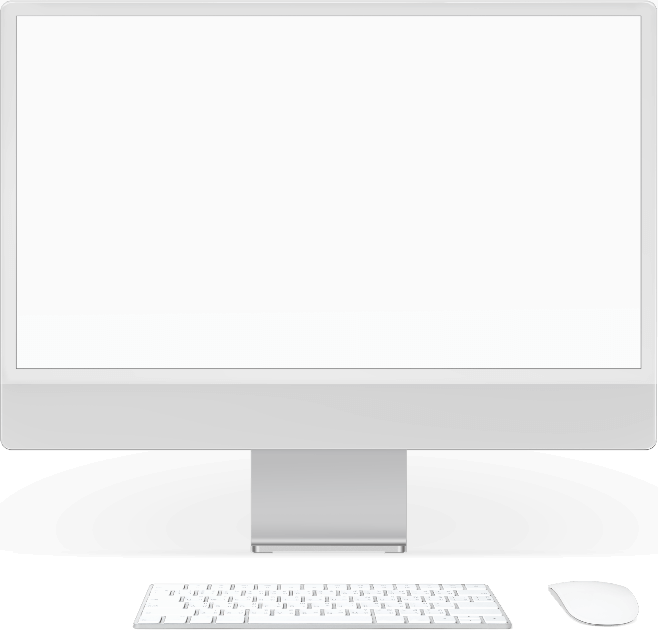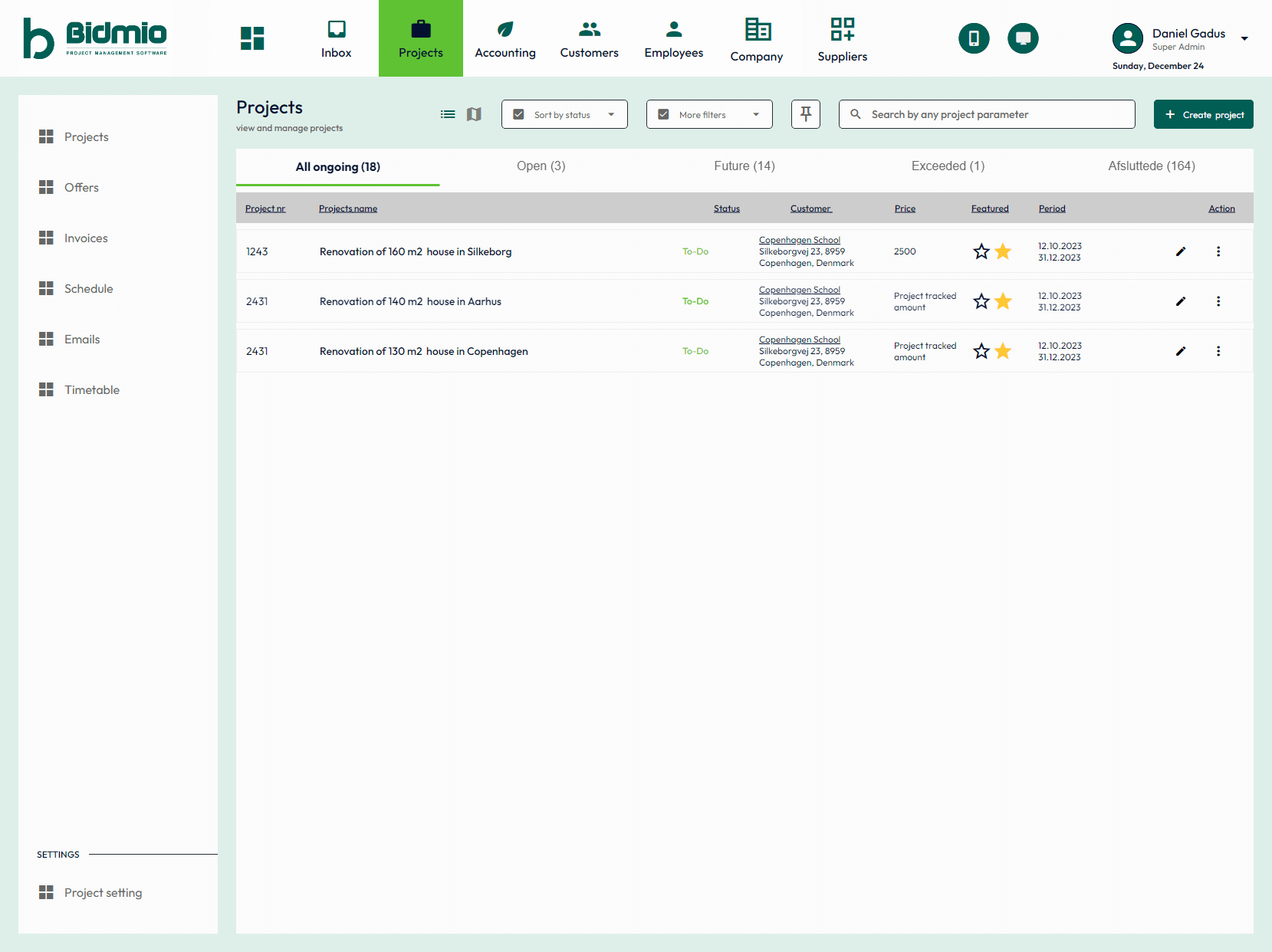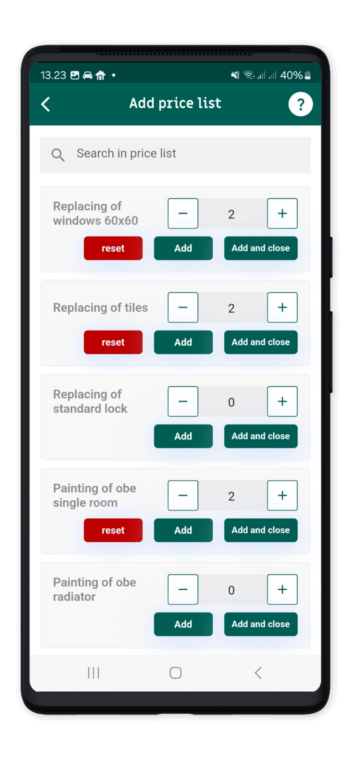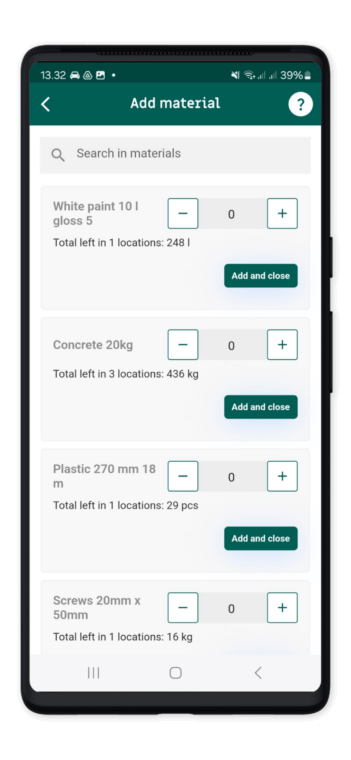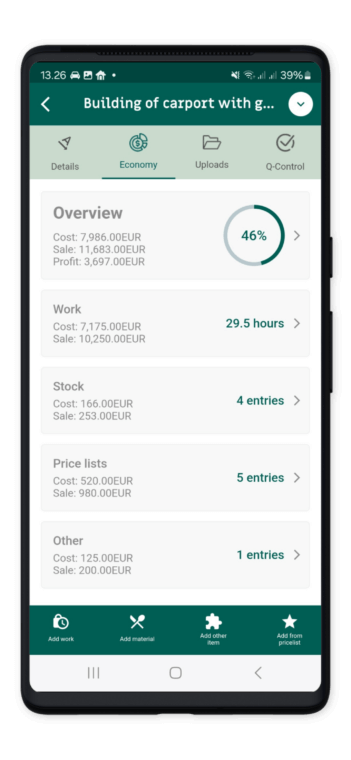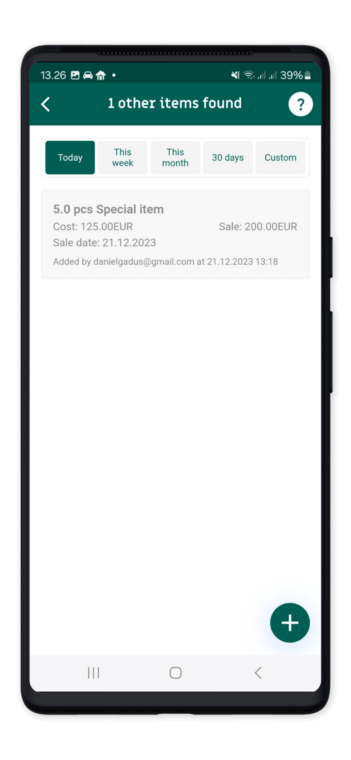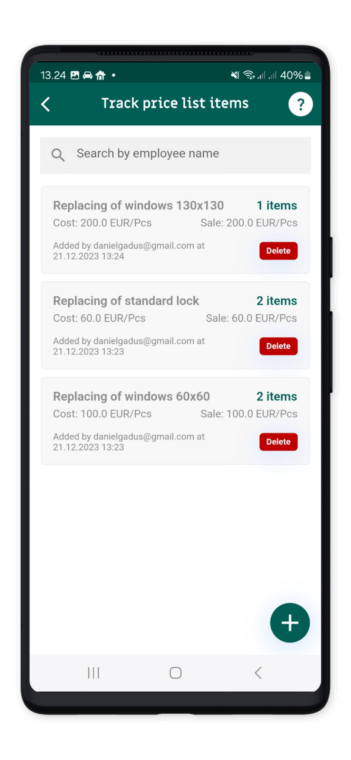Material Registration: Streamlining Task Management and Invoicing
Efficient and Accurate Material Tracking for Each Task
Material Registration is designed to simplify the process of tracking and managing materials for each task. By enabling you to directly register materials used on individual cases, this system significantly reduces administrative time and effort. The convenience of continuous material registration during tasks, right in the app, provides a solid foundation for precise invoicing.
Eliminate the Hassle of Forgotten Materials
One of the key benefits of using Material Registration is the ability to avoid overlooked or forgotten materials. By integrating material registration into your workflow, you can ensure that every item used is accounted for. This real-time tracking not only streamlines your process but also ensures accuracy in your records.
Seamless Registration While You Work
Material Registration is designed with the craftsman in mind. It allows for the registration of materials simultaneously as you work, integrating seamlessly into your daily routine. This feature means less disruption to your workflow and eliminates the need for retrospective record-keeping.
Accurate Billing Basis for Transparent Invoicing
With Material Registration, you gain an accurate and transparent billing basis. Every material used is recorded, ensuring that your invoices reflect the true cost of materials. This level of detail supports transparent billing practices, fostering trust between you and your clients.
Easy Transfer of Material Costs to Invoices
Another significant advantage of Material Registration is the ease with which material costs can be transferred to invoices. This integration ensures that all material expenses are accurately and efficiently reflected in your billing documents, simplifying the invoicing process and ensuring that you are compensated for all materials used.


